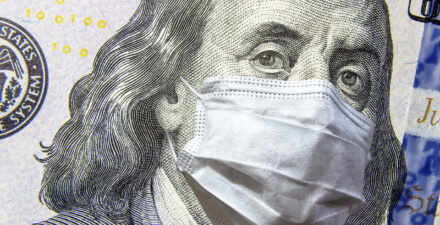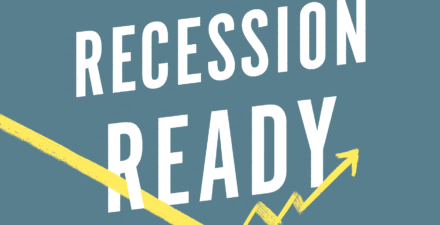U.S. economic policy principles for confronting the coronavirus recession

This post reflects our organization’s overall guiding policy principles for confronting the coronavirus recession as detailed on March 24. These principles still hold as there remains much to be done across communities and workplaces throughout the United States now and in the weeks and months ahead. Our coronavirus recession page provides updated analysis and policy resources from Equitable Growth.
The United States is facing—or indeed already is in—an economic recession. This is a highly unusual recession in that it’s been induced by a global pandemic which has led policymakers to shut down many parts of the U.S. economy. For the well-being of all of us, people are staying home and shuttering businesses. Public health experts know that to protect everyone in our communities, we must come together by staying apart. Decreasing the transmission of the virus and “flattening the curve” is, at the same time, causing an economic slowdown.
Our nation’s economic policy response to the coronavirus recession must start by acknowledging that the goal is to get as many people as possible to stop engaging in face-to-face contact or travel while doing so in a way that will allow us to swiftly get back on track once we have addressed the ongoing health crisis. If we truly flatten the curve and policymakers effectively respond to the true scale of this crisis, then we can avoid a full-scale coronavirus recession. We can think of this nationwide economic shutdown as “putting the economy on ice,” so that it can be ramped back up after the health crisis is addressed.
Today’s concerns about falling into a deep and protracted coronavirus recession are exacerbated by historically high economic inequality, which, when combined with a porous social safety net, makes the United States particularly vulnerable to economic shocks. This economic fragility is a direct result of prioritizing markets over people for the past 50 years. It is why the United States is one of only three industrialized countries that does not ensure every worker has access to paid time off when they are sick. It is why the United States spends just 0.6 percent of Gross Domestic Product on support exclusively for families and children, the second lowest of all Organisation for Economic Co-operation and Development, or OECD, countries. It is why our countercyclical spending programs are less developed and less able to cushion economic shocks than most of our economic counterparts.
High economic inequality is a problem in boom times, but it is particularly stark in this crisis, as it amplifies the severity of both the pandemic as well as the economic downturn.
How should policymakers respond?
To effectively respond to the coronavirus recession, U.S. policymakers must keep income flowing and pause expenses for individuals and businesses, ensuring they are ready to get back to work once the health crisis passes. But responding to the crisis without also making our economy more resilient against future shocks would be a mistake. That is why we are calling for permanent, inequality-fighting policy changes that improve the country’s safety net and work supports, and that enhance automatic fiscal stabilizers.
Keep income flowing
Here are four key ways to keep income flowing to U.S. workers and their employers so that both can ride out the coronavirus recession and rebound. Specifically:
- Provide paid leave. It is dangerous, morally wrong, and downright inhumane in the midst of a public health and economic crisis to ask workers to choose between risking their health or risking the livelihood they depend on to support their families. The time is now for a law that ensures every worker has the right to earn paid sick days, medical leave, and caregiving leave, so that we can address the current outbreak and avoid this problem when the next crisis strikes.
- Boost unemployment insurance. Congress must increase the amount of unemployment insurance benefits and ensure it reaches everyone―the unemployed, those whose hours are cut, and the many gig workers who make our economy run. Each state runs their own Unemployment Insurance program, but due to underfinancing and states making changes to their programs that make it harder to access or become eligible, the systems are not covering enough workers. Prior to this crisis, estimates were that around a third of the unemployed received benefits. In the context of COVID-19, we must ensure that:
- Unemployed workers are relieved of the need to search for work or report to a new job to receive benefits, both of which can pose a public health risk if the job-seeker has symptoms of COVID-19 or is in a high-risk group.
- All workers are covered—even the self-employed.
- States encourage firms to adopt work sharing, a policy that allows employers to reduce hours rather than cutting jobs and is particularly effective when the reduction in demand is temporary.
- Unemployment benefits make families whole and include covering the costs of maintaining health insurance coverage.
- Help small businesses pay their bills. The government must support small and medium-sized businesses now so they can quickly reopen their doors once the crisis is over. The government should open lines of credit at its long-term borrowing rate with deferred repayments and give business owners more time to fully repay the loans. This is especially important for businesses with fewer than 500 employees, which account for about 60 percent of U.S. employment and are at greater risk of cash flow problems.
- Ensure corporate assistance helps workers. Any corporate assistance must ensure that it puts workers first. The only purpose in providing aid to companies is to prop up the economy during the coronavirus recession, so that everyone can get back to work once the health crisis recedes. If the support doesn’t ensure that people remain employed by those companies, then there’s no point in providing assistance. Any corporate bailouts must impose conditions that empower workers through good wages, collective bargaining, and health and retirement security. Taxpayer investments should also promote sound financial management, should be structured as government equity stakes that allow close oversight, should provide for transparency and accountability, and should prevent opportunistic profiteering.
Additional fiscal stimulus
Given the nature of this crisis, effective automatic stabilizers, with effective triggers, are one of our best defenses so that the coronavirus recession does not turn into a full-scale economic depression. While some policymakers may raise the alarm at the cost of doing additional stimulus, now is not the time for them to worry about raising deficits and debt. And though it may be tempting for Congress to let the Federal Reserve step in and save the day, monetary policy alone will not be able to solve this problem. The Federal Reserve is taking drastic measures, but it has limited room to reduce interest rates—its most powerful tool. The need for fiscal relief is paramount. Specifically in the form of:
- Direct payments: Policymakers need to quickly direct money into the hands of low- and middle-income families who will help jump-start the economy if given more financial support to spend on things such as food and rent.
- The Supplemental Nutrition Assistance Program: We must inject money into supplemental nutrition assistance to stabilize the economy―for every $1 billion spent on this program during the Great Recession, $1.5 billion in GDP was generated.
- Medicaid and the Children’s Health Insurance Program: To avoid state budget cuts that inevitably happen during recessions, the federal government needs to increase its support to states and assume more of a share in funding for Medicaid and the Children’s Health Insurance Program as states’ unemployment levels rise.
While there is a long list of other policies to consider—such as putting a hold on home and rental foreclosures and evictions for both families and businesses—these are the ones that can best address the underlying fragilities caused by economic inequality and disparate access to quality jobs. As we confront the coronavirus, we are fast being reminded that people are the foundation of the economy. Without people to work the jobs that keep the economy afloat, gains from economic growth at all levels of the income ladder disappear. We are also reminded of how high economic inequality—and the ensuing inequalities in workplace benefits, incomes, access to healthcare, and other basic services—creates fragilities that are making both the crisis itself and addressing it that much harder.
We are also learning that as our shared response to coronavirus continues to evolve, we need to remember that the economy isn’t something that happens to us—it’s the result of choices that policymakers make. People and communities may have individual agency, but the only entity with the power to mobilize resources and not further exacerbate rising inequality at such a large scale is the government. This coronavirus epidemic illustrates that individual choices are absolutely critical but far from enough. The power of federal, state, and local institutions and the people within them to make far-reaching decisions can alter the trajectory of disasters such as the one facing us now.






